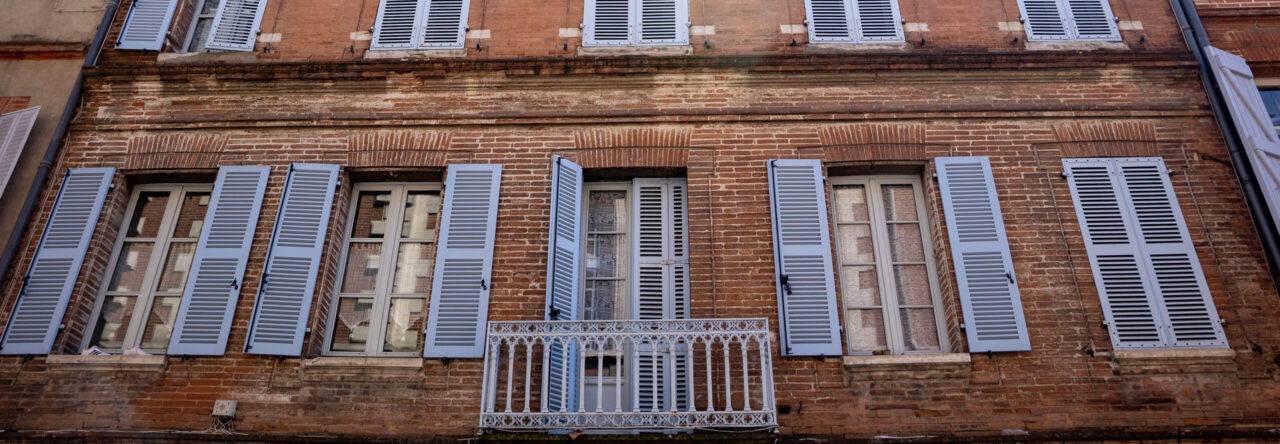Editors: Okung, Lina, Nadia, Isy, Allie.
Each day, the global population creates more and more pollution that destroys our environment, and Toulouse is no different. Its constant population growth over the past 30 years has led to an increase in car usage- roughly 50% of Toulousains use a personal car as their primary form of transportation. Though in some cities, fewer people are smoking, the practice remains very common in Toulouse, and cigarette butts are left in streets, parks, and the river. Also, Toulousains do not clean up after their dogs, instead leaving the messes in the middle of public sidewalks. There are many steps that Toulousains can take to help the environment- and beautify their city in the process.
Daily habbits to help decrease pollution

With all these problems, there are solutions that exist currently to ameliorate the situation. First, in Toulouse we do not see as many cars as in other large cities, but the metro is used a lot. “After having visited Toulouse’s downtown, it is clear why the metro is so popular – there is no room for cars nor the need for this type of transportation” (Allie). Most of the time, the metro is faster than the cars. By avoiding traffic jams, the only things that affect the metro are blockages and construction. With this time gained also comes protection of the environment. When the trains arrive at stations like “Jean Jaurès, the only station where the two lines of the metro cross…they are way too many people” (Allie), thus there are fewer people in cars. Because of this, there is less pollution from cars in the air and in the environment. Even though the metros cause some pollution, it is much less than that which all the cars would create if the metros did not exist.
Another solution that exists is the prohibition of many types of plastic  bags in France. In many grocery stores in French, the cashiers do not give out plastic bags for bagging food. In fact, if you do not bring your own bag, you can buy a reusable bag at the cash register for a few euros. A student, Isy, notes that “Normally these bags are made with paper, they do not exist in many groceries or stores that give people free plastic bags. There are types of plastic bags still exist in France which have not been banned and such bags can be used for fruits and vegetables. These bags must meet the minimum standard of being a biosourced material and must compostable. With this change, France has gotten rid of millions of plastic bags that could potentially pollute the enviroment.
bags in France. In many grocery stores in French, the cashiers do not give out plastic bags for bagging food. In fact, if you do not bring your own bag, you can buy a reusable bag at the cash register for a few euros. A student, Isy, notes that “Normally these bags are made with paper, they do not exist in many groceries or stores that give people free plastic bags. There are types of plastic bags still exist in France which have not been banned and such bags can be used for fruits and vegetables. These bags must meet the minimum standard of being a biosourced material and must compostable. With this change, France has gotten rid of millions of plastic bags that could potentially pollute the enviroment.
A diet that’s more restpectful to the environment?
Evidently, the French have a delicate and appreciative relationship with food that reveals their ideas in relation to the manner in which consumption affects health. There are not many vegetarians in France, but the number has been increasing. However, in France, the economy and the government take care of the agriculture industry as it is an integral part of French history and culture. On the other hand, in the U.S., it is true that there is a significant amount of intensive animal farming, as well as many factories who mistreat animals. Furthermore, American brands also tend to use a significant amount of preservatives. In France, these practices are less common, so people have little reason to motivate themselves to quit eating meat.
“The way that the French view meat consumption is more humane and healthy,” a student, Lina Miller says, “I think this method of viewing meat consumption is tied to the way the French perceive health to be connected with what we eat.” Another student, Isy, gives another example of this French concept, noting that “Non-pasteurized milk is banned in the U.S., but in France, raw milk is not banned and is very common in domestic life. The different tastes of these two types of milk are noticeable and they affect the taste of other foods and drinks.”
The aspect in which the French choose what is important to concentrate on, suggests that the things we put in our bodies have a direct effect on our lives. Meat and raw milk are not considered as bad things for health, but however, the French do not consume as many preservatives. In these specificities, we note that the French take care of what they consume.
The paradox of cigarette and cannabis use
 The French have an individual relationship, and also a social relationship regarding the use of cigarettes. Compared to the United States, one observes that there are many more smokers in France and you can see a culture that is more tolerant of smokers. As Nadia observed, “…In the United States, there is a sort of prejudice against people who smoke, especially close to children. But here, in Toulouse, there is not this same mentality. I have made some French friends and they told me that they smoke for its social aspects. Often, when a friend leaves to smoke a cigarette, the others leave with them to continue the conversation. » As Nadia remarked well, it is clear to see there is a more social aspect than one that is more attentive to the environment and health. In the United States, people think more about the negative consequences of smoking and that the social aspect is not a reason that is more imprtant than health considerations.
The French have an individual relationship, and also a social relationship regarding the use of cigarettes. Compared to the United States, one observes that there are many more smokers in France and you can see a culture that is more tolerant of smokers. As Nadia observed, “…In the United States, there is a sort of prejudice against people who smoke, especially close to children. But here, in Toulouse, there is not this same mentality. I have made some French friends and they told me that they smoke for its social aspects. Often, when a friend leaves to smoke a cigarette, the others leave with them to continue the conversation. » As Nadia remarked well, it is clear to see there is a more social aspect than one that is more attentive to the environment and health. In the United States, people think more about the negative consequences of smoking and that the social aspect is not a reason that is more imprtant than health considerations.
But concerning other drugs like cannabis, the beliefs of each country are the inverse. As Allie noted, « in the United States, it seems like smoking cannabis is a pass-time that is very popular…the American public is becoming increasingly comfortable with the legalisation of cannabis, not only for medical reasons, but also for recreation. » Her host observes that there is not at all the same mentality in France as many French people believe that cannabis is more dangerous than cigarettes due to its psychological impacts.
This reversal of attitudes concerning the effects of drugs shows that the Americans and the French think of the environment in completely different ways and especially that the social environment of each country influences individual actions and as a result, the way of thinking about public consumption.

Leave a Reply